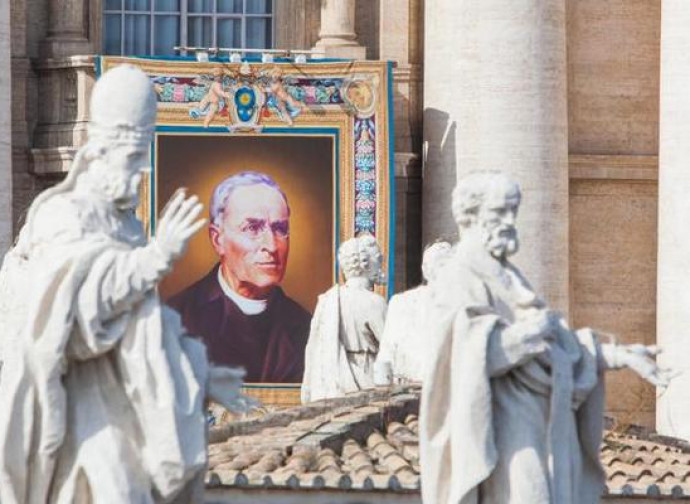Saint Vincenzo Grossi
He spent hours in the confessional, educating consciences in the Christian virtues and nourished himself with prayer, penance and contemplation of the Blessed Sacrament.

This priest became a saint by carrying out his ministry in faithfulness to God, whom he served in his daily life. He spent hours in the confessional, educating consciences in the Christian virtues and nourished himself with prayer, penance and contemplation of the Blessed Sacrament. Parish priest for 44 years, the life of St Vincenzo Grossi (1845-1917) is extraordinary for its ordinariness and demonstrates once again that the ways of holiness, in single minded obedience to God, are many. In this sense, in beatifying him, Paul VI indicated him as “a serene and persuasive example for priests directly involved in the care of souls” because in him they can find “a new model of sanctification and zeal”.
The penultimate of ten children, he was born into a family of millers. Already after his First Communion he expressed to his parents his desire to become a priest, following the example of his brother Giuseppe. Until the age of 19 he stayed with his parents to help them with their work. In 1873, four years after his priestly ordination, he had his first job as parish priest in a hamlet of his native town, Pizzighettone (province of Cremona), where a “wretched predecessor” had worked, according to the definition given by the bishop. With patience and sacrifice, the saint succeeded in bringing many souls closer to God, transforming the village into a “little convent”, as some confreres called it. He was very attentive to the education of the youth, also because he was aware of the social and moral fragility in which many of them were growing up. In particular, a group of girls gathered around him, whom he directed towards community life.
He was then sent to a parish with a strong Methodist presence. “The Methodists must understand that I love them too”, was his resolution. His mission was successful. Their pastor went to listen to his sermons and the Protestant families began to send their children to the parish school. His project for the women's community took shape with the foundation of the Daughters of the Oratory: he placed the new institute under the protection of St Philip Neri. He instructed the religious with catechesis and continuous reading, so that they would have a solid Catholic background, and urged them to educate the young in the Christian spirit with the “holy joviality” of their protector. He taught everyone to have a faith enlivened by good works: “Work, work because in Paradise you have to arrive tired... there you live off the dividends”.
